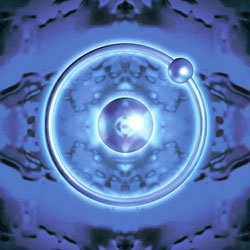Nuclear Hydrogen: The Clean Byproduct
Some nuclear advocates are hoping the U.S. will eventually embrace a zero-emissions hydrogen energy economy. Strange as it may seem, nuclear strategists have plans (enthusiastically supported by the Bush administration) to generate hydrogen from nuclear power.

Dr. Ken Schultz, operations director of the Energy Group at General Atomics in San Diego, says that the nuclear industry expects realization of commercially available nuclear-produced hydrogen by about 2025. He thinks the industry could produce hydrogen for $1.50 to $2 per kilogram, or $10 to $15 per million BTUs. The federal Nuclear Hydrogen Initiative envisions demonstration of a commercial-scale hydrogen production system for use with nuclear reactors by about 2020.
The next generation of nuclear power plant designs, including so-called "pebble bed reactors," produce high-temperature steam, which Mujeeb I. Ijaz, manager of fuel-cell vehicle engineering at Ford, says is ideal for hydrogen generation. "The standard process of making hydrogen from water through electrolysis is 50 percent efficient," he says, "but if you electrolyze water that is already at high temperature and high pressure, that greatly improves efficiency."
General Motors, one of the auto industry’s hydrogen leaders, is actively investigating nuclear power as a source of inexpensive hydrogen. "Nuclear certainly can play a role," says Britta Gross, manager of hydrogen infrastructure for GM. The company hopes to have the feasibility of fuel-cell vehicles demonstrated by 2010, and it’s actively searching for affordable hydrogen production options.
Dr. Kathryn McCarthy, INL’s director of Advanced Nuclear Energy Systems Integration, says that a single 300-megawatt nuclear power plant could produce 200 tons a day of hydrogen, enough to fuel 300,000 fuel-cell vehicles. To produce 150 million tons of hydrogen annually and replace fossil fuels used by cars and trucks in the U.S. would require approximately 2,000 pebble bed plants in the 600-megawatt range. Currently, there are no "next generation" plants online in the U.S., and one planned for Idaho has been indefinitely suspended.
Amory Lovins of the Rocky Mountain Institute remains skeptical that nuclear-generated hydrogen is feasible. "Hydrogen is not a way of saving nuclear technology but another fatal competitor for it," he says. "And the so-called "nuclear renaissance" is really a large and adept echo chamber trying to create the illusion of a vibrant and competitive industry. In reality, nuclear retirements will overwhelm the new plants. Nuclear power plants are unable to secure financing because building the plants is so expensive."

